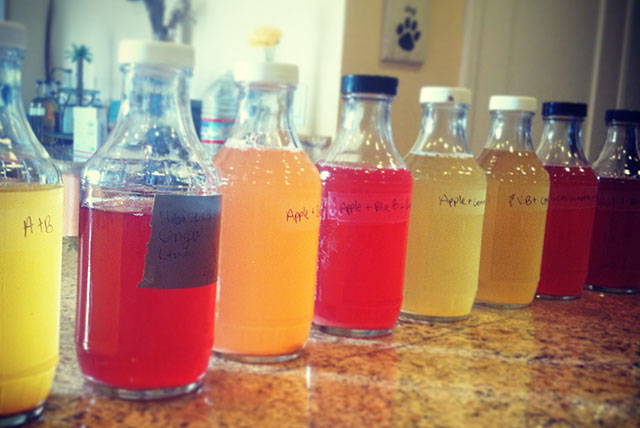
Why You Need To Know about Jaggery: Benefits of Fermented Foods and Beverages
Traditional diets around the world have always called for the culturing or fermenting of certain foods and beverages. Although modern food processing is focused on quick, convenient, packaged, and microwavable “foods,” we are in the midst of a modern-day food revolution as the consumer demand for fresher and healthier food choices grows.

In recent years, there has been an unfortunate rise in food allergies and sensitivities as well as gut and immune system issues, causing us to look to our ancestors for ancient wisdom regarding food and healing. As the news spreads about the benefits of naturally cultured and fermented foods, there continues to be an uprising of tremendous interest in unpasteurized, pickled, cultured and naturally “soured” dairy products, vegetables, breads, beverages and more. Here are some of the many benefits:
- Fermented foods contain beneficial bacteria that help create the proper balance of healthy to pathogenic bacteria in our intestines.
- Fermented foods contain important enzymes that help make food easier to digest and assimilate.
- When used as a condiment with meals, fermented foods aid digestion by increasing the acidity of stomach acid, making protein digestion much easier.
- Fermented foods may aid digestive issues such as acid reflux, IBS and other gut-health problems.
- The natural process of aging can cause a decrease in the production of stomach acid and digestive juices. Eating or drinking even small amounts of fermented foods and beverages on a regular basis may help to correct this.
Fermented beverages are nature’s answer to unhealthful, artificially sweetened or sugar-ladened commercial sodas. For people sensitive or allergic to dairy, naturally cultured foods and beverages are a source of dairy-free probiotics. Some popular fermented beverages include:
- Kombucha – A lightly sweet, effervescent beverage enjoyed by many for its beneficial bacteria and health-promoting properties. Kombucha contains many species of friendly yeast and bacteria along with amino acids and antioxidants.
- Water Kefir – Cultures of bacteria and yeast are added to sugar water. The cultures metabolize the sugar, making water kefir a fizzy, fermented beverage that can be flavored as desired.
- Ginger Ale – True ginger ale is nothing like the common commercial brands available at grocery stores. It is a naturally fermented and lightly sweetened, robust ginger-flavored beverage teaming with beneficial bacteria. Traditionally-prepared ginger ale has been used as a remedy for stomach aches and other ills. Ginger helps to calm and settle the stomach, and it’s a potent anti-inflammatory.
 Making homemade fermented beverages is popular and fun. In order to properly culture fermented beverages, make sure the recipe includes sugar. Many people use refined cane sugar or other sweeteners, even when they normally don’t include sugar as part of their healthy diet.
Making homemade fermented beverages is popular and fun. In order to properly culture fermented beverages, make sure the recipe includes sugar. Many people use refined cane sugar or other sweeteners, even when they normally don’t include sugar as part of their healthy diet.
But it’s possible to avoid refined sugar when making fermented beverages: For making guilt-free, naturally cultured beverages, we recommend delicious organic jaggery, a natural, traditionally-prepared sweetener made by evaporating organic raw sugarcane juice without separating the molasses from the sugar crystals. Natural Jaggery contains vitamins, minerals, and trace minerals naturally present in whole sugar cane.
